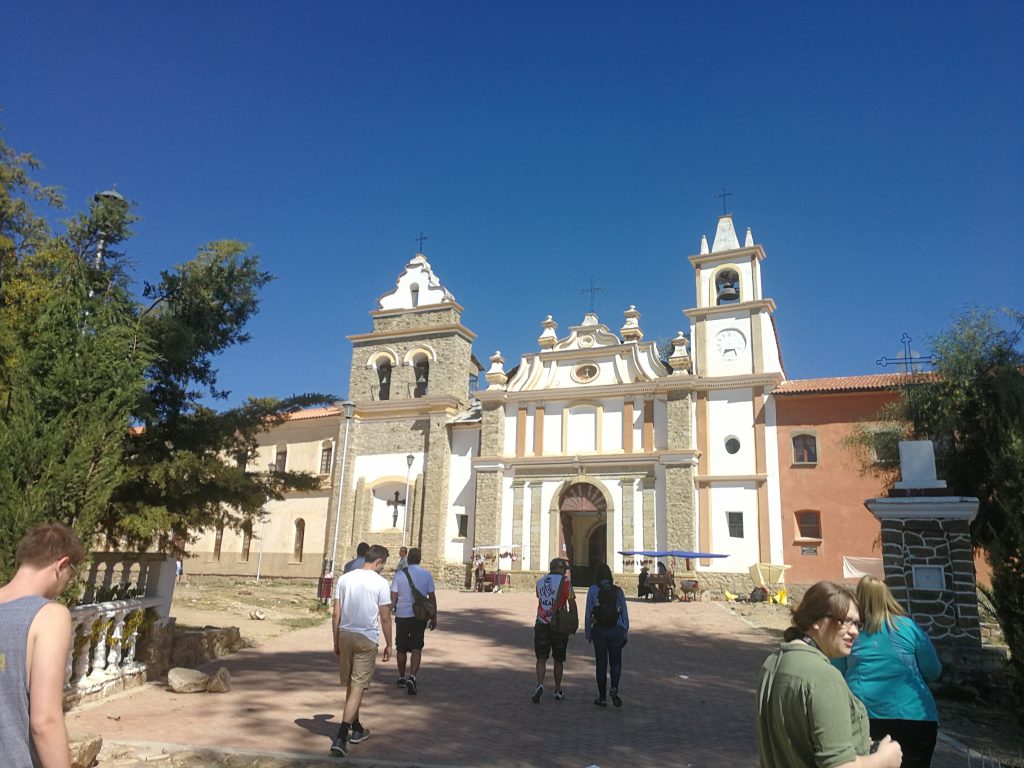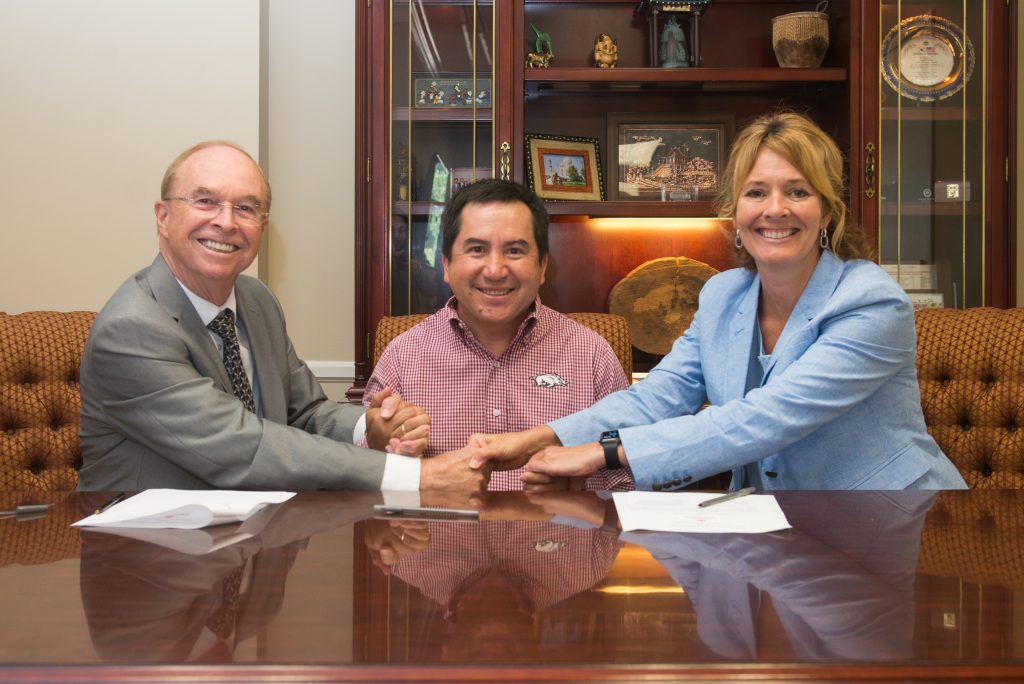A group of 13 students and three faculty members recently spent three weeks in Bolivia on a new study-abroad trip offered by the University of Lynchburg’s Criminology program. The opportunity was conceived by Criminology and Spanish faculty as an alternative to the England-Scotland study abroad.
Every other year, Criminology faculty take students to England and Scotland for a comparative criminology class. The students compare and contrast how law enforcement, the courts, and prison systems in England and Scotland compare to that of the U.S. They also learn about criminal justice history and British culture.
Smith, a criminology instructor who spent decades working in municipal and federal law enforcement, proposed a similar program in Bolivia.

“I previous spent about four years living and working in Bolivia under the U.S. Embassy, so I had good connections with various components of the Bolivian criminal justice system,” Smith, who has worked for the Drug Enforcement Administration, Homeland Security, and the U.S. Department of State, said. “So, I suggested a trip to observe the civil law-based system of Bolivia as an alternative to the common-law systems of England and Scotland.”
Through the Bolivia study-abroad program, students can earn credit for two courses: Comparative Criminology and Intermediate Spanish. “The trip was typically divided with Spanish lessons in the morning and criminology site visits in the afternoon,” Smith said. “We were in the city of Cochabamba, Bolivia, besides transiting through the capital of La Paz.
“The students went to a variety of criminal justice institutions, including the regional police academy, the forensic lab and morgue, the police K9 school, the police family violence unit, a men’s prison, a women’s prison, the narcotics police station and crime lab, and the criminal court.
“In addition, we had lectures from lawyers regarding the criminal law system, experts on the penal and prison systems, the environmental and animal police — think EPA meets fish and game — and an overview of the police system and specialized units.”
The Lynchburg group also spent a lot of time learning about Bolivian culture. They visited traditional markets, including the “witches” market, where one can purchase folk remedies and other oddities. They went to a religious festival to watch traditional Incan dances and visited the famous Christo de la Concordia — Christ of Peace — statue.

The group attended a barbecue at the home of one of Smith’s Bolivian friends, went to a dance club, toured a mansion, witnessed a political protest, sampled Bolivian and international cuisine, and watched a Bolivia vs. Chile soccer match.
Along the way, they also made connections that resulted in a new partnership for the University of Lynchburg. While visiting the Universida Mayor de San Simon, a Bolivian university that has more than 50,000 students, Lynchburg faculty met with officials, including Dr. Omar Morales Delgadillo, the university’s academic director.
A few weeks later, when Dr. Morales was in the U.S. visiting his daughter, he stopped by University of Lynchburg and met with President Dr. Kenneth Garren and Dr. Sally Selden, Lynchburg’s provost. During the visit, the representatives of the two universities signed a partnership agreement.
“For us, any partnership provides an opportunity for students to study abroad and spend some time there learning the language,” Dr. Selden said. “We’re hoping to have some faculty and student exchanges, probably very similar to our other partnerships.
“The students had a wonderful experience in Bolivia. It’s an interesting place to study criminology. This is our first partnership in Bolivia, so that is of great significance to the University. It offers our students something they haven’t had access to before.”


